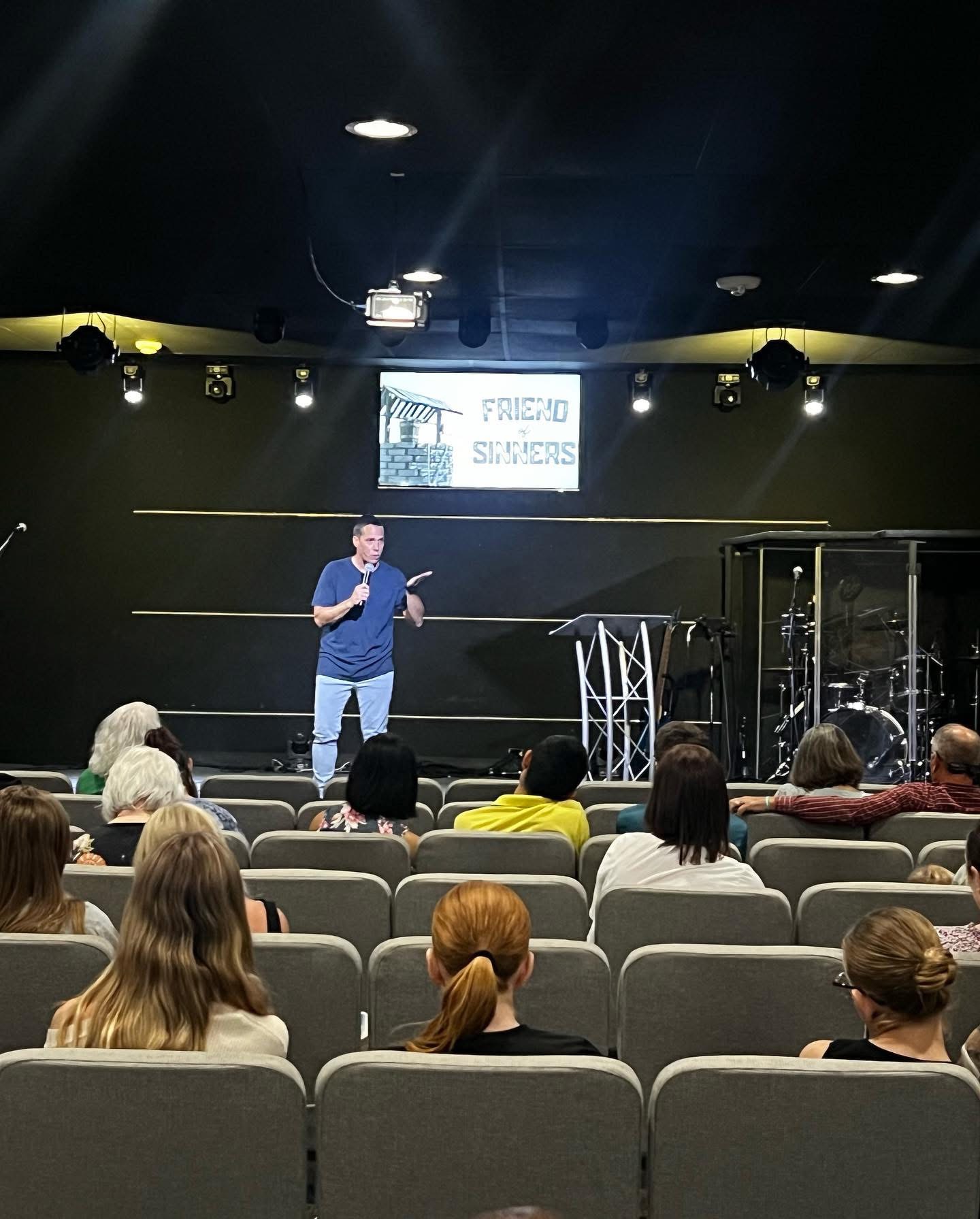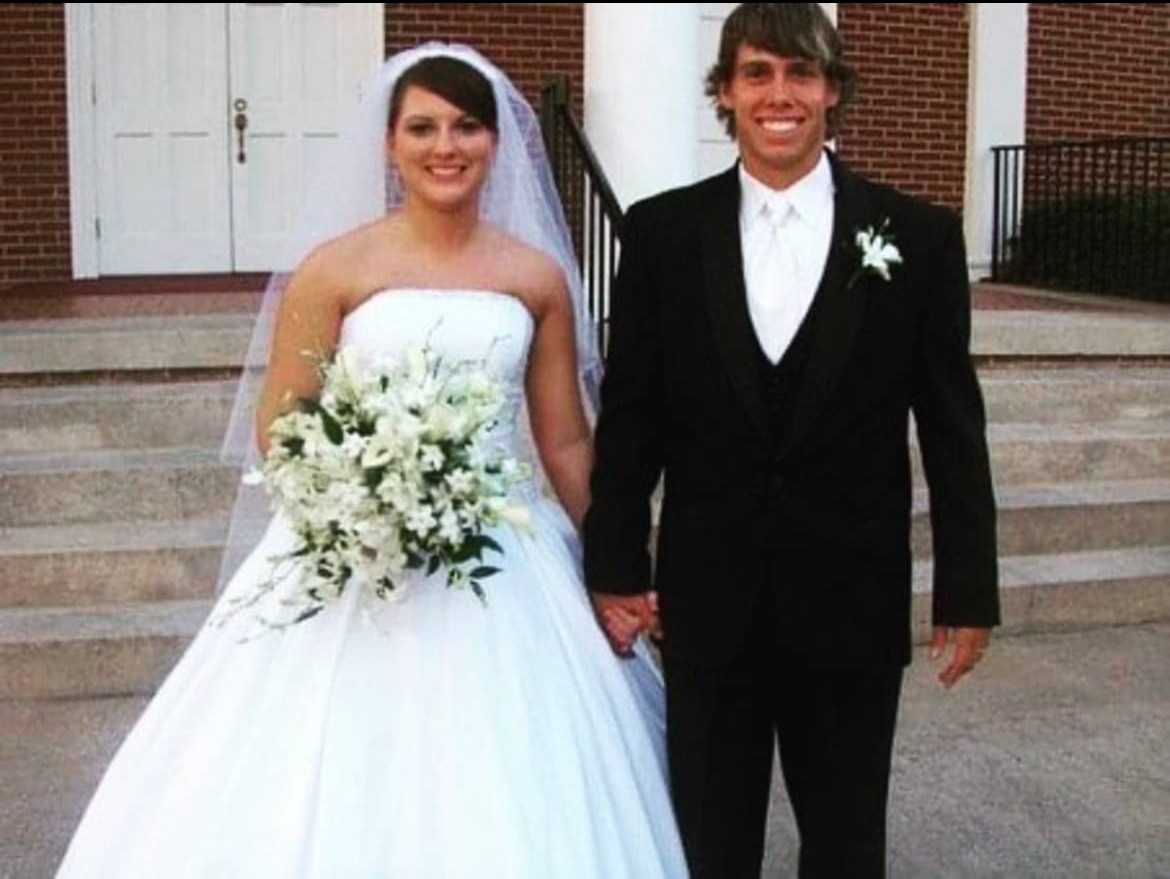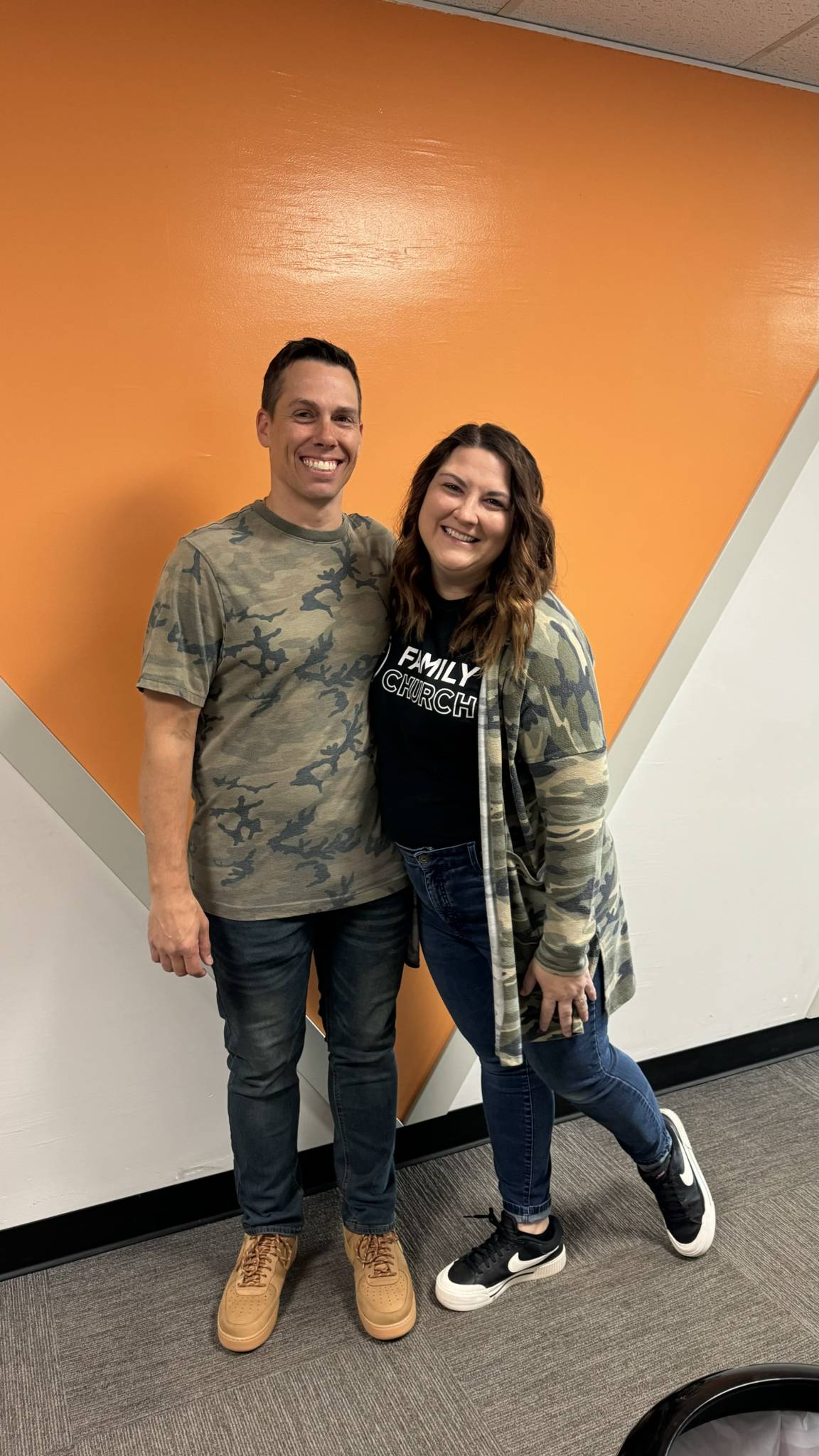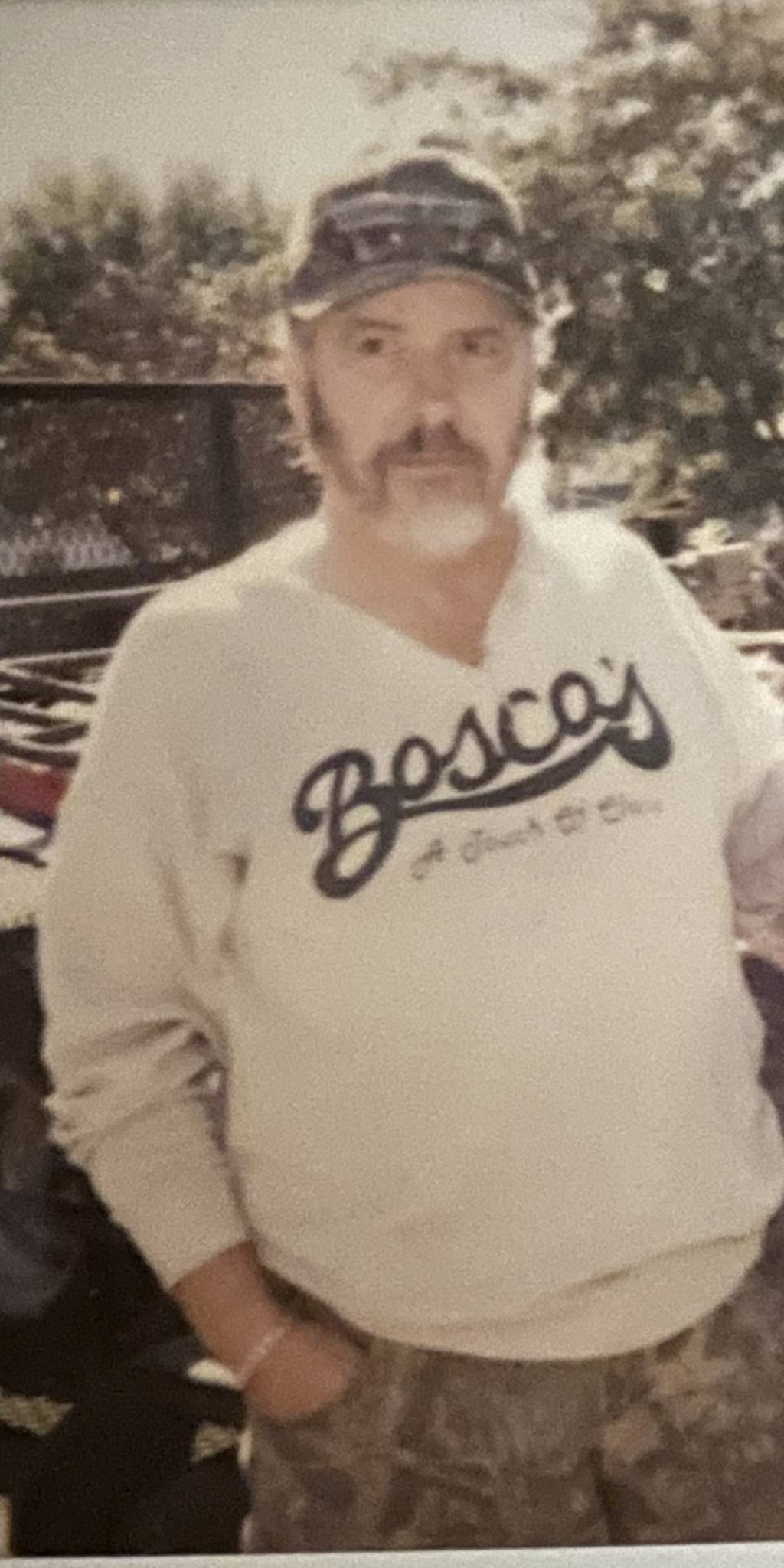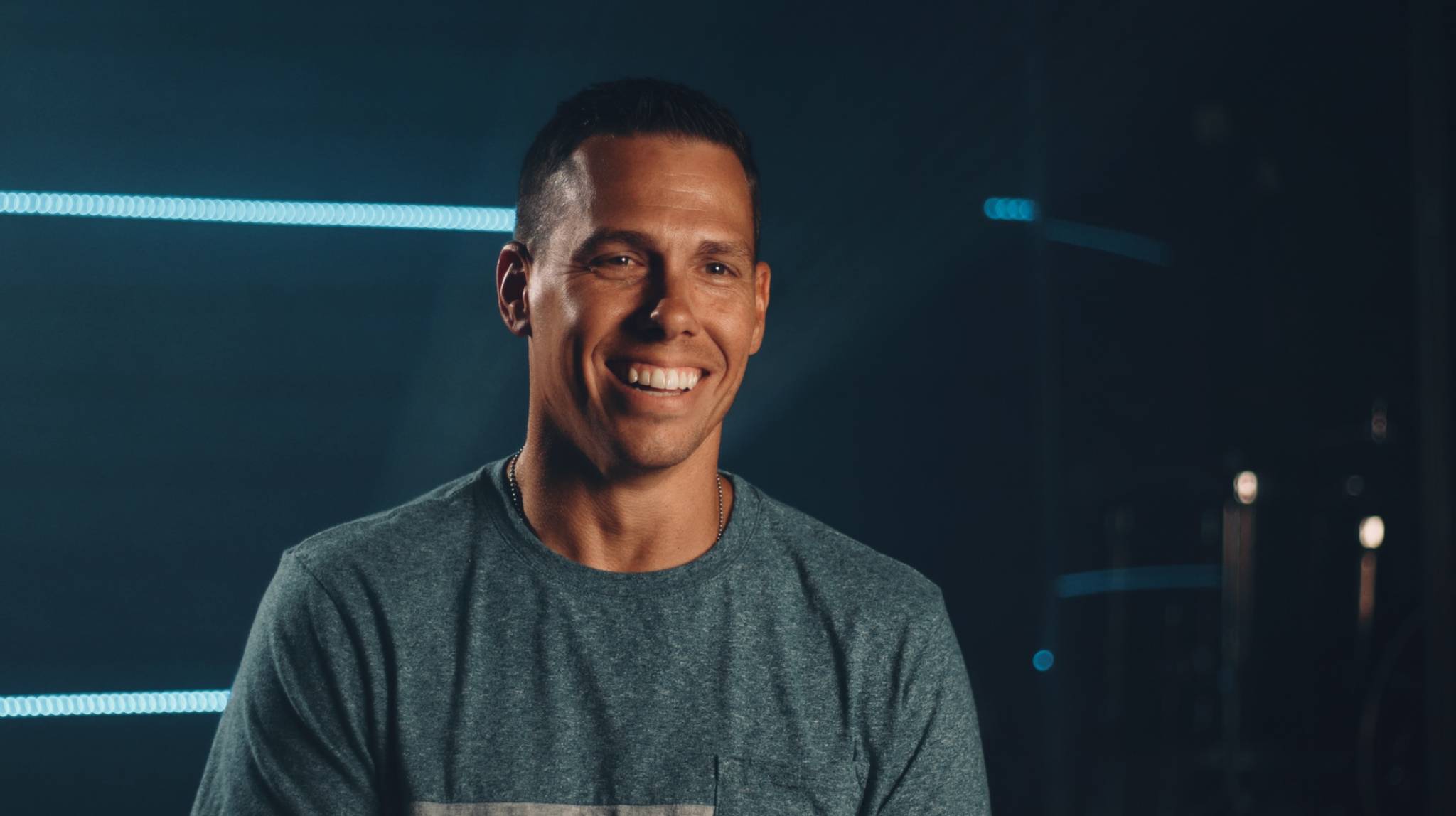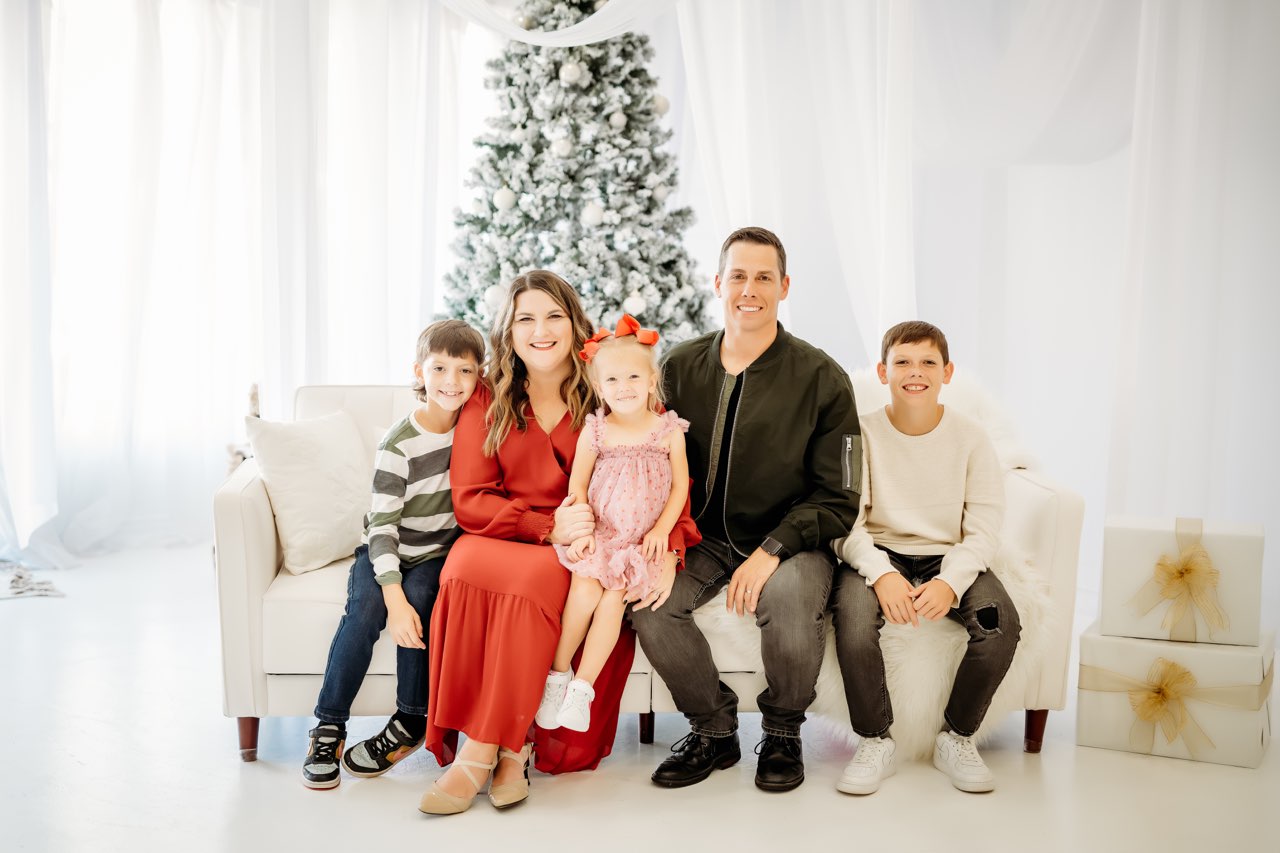Everyone who knows Pastor Woody Burpo knows of his passion and love for the Lord. Those same people also know of his deep love for Yukon, Oklahoma, where he and his wife Jessie planted Family Church seven years ago.
Family Church is vibrant, growing, and full of young families. Woody’s ability to relate to many people and circumstances within the community has given him influence well beyond the church walls. While most know of his passion and cheerful personality, many would be surprised to hear his story and learn about his choice to live a life of hope.
Pastor Woody doesn’t remember his parents being married; his parents divorced when he was three. Even so, Woody doesn’t have hard feelings about his childhood; his optimism is too great, and his joy in the Lord is too strong to wallow in what could have been. He recognizes the difficulties of growing up in two very different households. One, with his mom, stepdad, and brother, felt traditional, and they attended church together as a family. The other, with his dad, wasn’t so traditional. His father, Rusty Burpo, filled with hurt and bitterness from being deserted by his first wife, filled his life with women and weed and sought to find peace and acceptance from this world.
Early on, Pastor Woody knew he would have to choose: would he embrace a life of bitterness or hope? Woody chose hope. In middle school, at a small gathering consisting of him, his older brother Dustin, and a friend named Ashley, the youth pastor posed a simple question: “Do you want more of God?” Woody said that no one responded. The youth pastor lightly kicked Woody’s foot, looking at him with expectation. Woody responded: “Yeah.”
That small step towards God, that moment of confessing, “Yes, I want more of God,” led Woody to walk with Christ. Woody began getting up at 6 am to read the Bible. Before long, that didn’t seem like enough time in the Word, so he got up at 5:30 am. Then, 5. Then, 4:30. His mom recalls him hanging a sign on his bedroom door: “Do not enter. I’m praying.” Woody was “on fire” for God; he has always been passionate, an “all or nothing” individual. He continued his commitment to Christ throughout high school, winning souls with his passion. He tells a story of putting a hand-drawn picture of a cross on the outside of his locker in the morning, but by the next class, it had been torn down. Woody drew another cross and put that one up. He was met with the same results. Woody, the passionate, stubborn young man that he was, made eight different crosses, one for each period of the day, and put up a new cross between each class.
While studying at a local community college and then at Southwestern Christian University, Woody walked away from his commitment to the Lord for two and a half years. He figured attending a “Christian” college would keep him out of trouble, but Woody shares, “You can find trouble anywhere.” Woody tried the pleasures of this world, but he found them lacking. He shares that Pastors Steve and Julie Ely were instrumental in helping to draw him back to Christ during this time. They treated him with kindness and love amid his season of rebellion, helping him walk a path of restoration when it would have been easy to turn their backs on him.
As Woody grew and spent time with the Lord, his joy and peace were evident to those around him. Even his father noticed. One day, Rusty sat in his truck up on the hill, watching for Woody. It wasn’t long before Woody saw his father and headed up to meet him. He was curious to hear why his father was there. Rusty finally asked his son: “How can I be as happy as you are?” Woody was ready with an answer; he knew why he was so “happy”: “It’s Jesus. Jesus is the reason I’m so happy.”
Rusty Burpo didn’t like that answer. Rusty was familiar with the Christian life and spent his married years in church. Woody said another family member mentioned that Rusty never allowed even a cigarette on his property in years past. After the failure of his marriage, many things changed. The most significant change was the bitterness that took root in his heart. Rusty was searching for love. Unconditional, faithful, never-changing love. Woody knew he would only find that love in Christ. Rusty sought to find that love in relationships with women, in drugs, and in admiration from friends. He never found it in those places.
In January of 2006, just about a month after Woody’s winter graduation from college and two weeks after becoming engaged to Jessie, Pastor Woody Burpo’s world was turned on its head. While attending a luncheon for work, Woody saw that he had missed several phone calls from his brother, one from his mother, and one from his aunt. He stepped away from the table to call his brother back and heard, “Dad is gone.”
Woody didn’t even know what his brother, Dustin, meant by “gone.” He just knew he had to get to his family in Kingfisher, Oklahoma as quickly as possible. He met up with his fiancée, Jessie, a friend of hers, and one of Woody’s good friends, and together they hit the road.
Upon arrival at his father’s house, Woody’s mom and brother embraced him, and quickly, that embrace turned into an effort to hold him in place. Woody was determined to enter the home where his father lived to see what was going on. A childhood friend, Matt, who now worked as a police officer, stood in the doorway and kept Woody from barreling through, wrapping him up in a hug as he held him in place. He told Woody: “You don’t want to see anything that’s in there, man. Let us get it cleaned up, and then you can go in.”
Rusty Burpo had taken his own life.
Scenes from his life with his father played through Woody’s mind. Hunting. Fishing. Swimming, knee boarding, and tubing in the muddy water of a nearby pond. Their conversation about happiness.
Woody spent the next four weeks working with his brother and grandfather to start getting his father’s business in order. When the time was right, he and Dustin were allowed back into his father’s home, and they were given his cell phone. The boys found a note on his phone that said he was sorry to his two boys and that “they are the best young men I know.” He also typed: “Don’t worry. I’ve made my peace with God. I’m with grandma.” These few words have brought immeasurable comfort to Woody and Dustin over the years.
Woody’s ministry has been shaped by his experiences. As a pastor, he is compassionate but steadfast. He has seen and experienced some of the worst things that a person can, so when a friend, loved one, or congregant comes to him with their troubles, he isn’t surprised or put off by life’s messiness. He listens, loves, and then offers the same hope that has pulled him through his own pain.
Woody also boldly speaks the truth. He attributes this to his international internship, which he began just four weeks after his father’s death. The internship was lined up, and the tickets were purchased; Woody felt he had to go. Woody said that as he met new people overseas, they would inevitably ask about his parents. He had a decision to tell the truth or make something up. He decided to tell the uncomfortable truth. Every time. This international experience felt God-ordained as Woody learned to speak openly about his father’s passing. He also leaned heavily on the Lord, speaking in tongues when he had no words to express the pain in his heart.
Jessie, Woody’s wife, explains that pain is an equalizer among people, and grief is relatable. She says that Woody can genuinely say, “I can put myself in your shoes,” whether their pain was the result of death, addiction, family dysfunction, or any number of other issues that arise in life. These difficulties that have shaped Woody’s life were meant to harm and to silence him by the enemy. However, just like in the story of Joseph in Genesis 50, God is using what was meant for evil for the good – good in Woody, his family, Family Church, and Yukon, Oklahoma.



